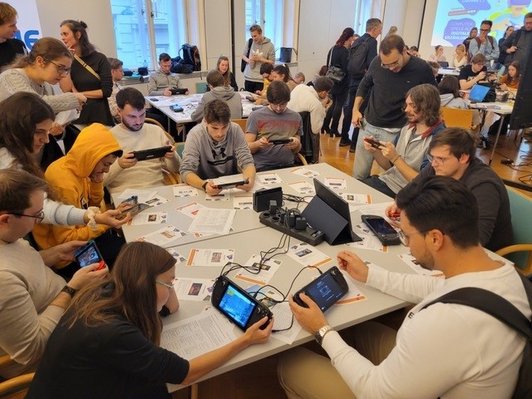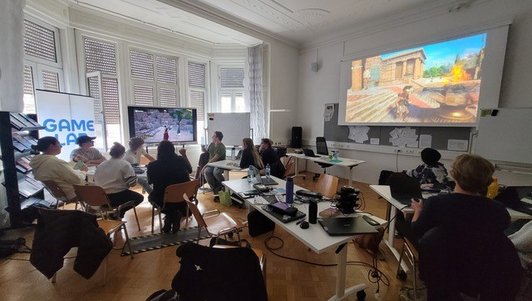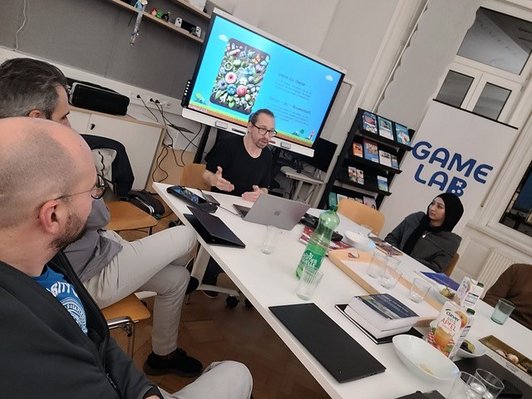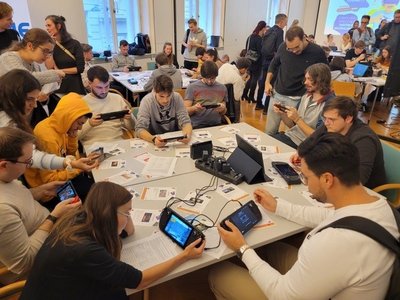Digital GameBase/d Learning
Contextualising, curating and annotating with a video game database
The project “Digital GameBase/d Learning” uses computer games as a medium in public schools. It centres on the development of a digital, freely accessible database containing specially curated games and didactic materials for subjects such as history, computer science and Digitale Grundbildung, as well as German and geography. The platform will be set up as a wiki, a technology that enables adaption, addition and customisation by citizen scientists.
The project is a response to the already enormous and growing presence of digital games in everyday life and gamification in work, education and politics, and their potential for learning in schools. The GameLab, which has been built up at the University of Vienna over several years, provides a sound basis for the project thanks to its comprehensive gaming equipment and a team with a wealth of practical experience. The database will provide teachers with a source of lesson plans for the use of games in the classroom, explicitly addressing curriculum references and concrete application possibilities as well as references to framework conditions. The involvement of students and pupils as active co-creators should help to make the content practical and appealing.
The works, experiences and contributions of the students involved are incorporated directly into the database. In the project, we are working with differently situated secondary schools and a commercial school. This broad-based approach will also characterise the contents of the database: the design of the teaching-learning arrangements is co-creative and takes into account, among other things, the principle of ‘deeper learning’, which focuses on active participation and reflection. Student teachers summarise the media products created in workshops and collected research data in short teaching concepts and use them to create teaching materials. These are tested and evaluated in further workshops to ensure practical application. The database will remain in place for use in regular lessons after the end of the project and will continue to be informed and updated through the activities of the GameLab, ensuring the long-term dissemination and further development of the content.
Particular attention is paid to the participatory role of the pupils, who are actively involved in the research and creation of the content as experts in their own gaming biographies and experiences. The close collaboration with the partner schools enables the participatory work that is relevant to the project's citizen scientist approach. In addition, the project creates a framework in which it should be possible to develop a wide range of materials to integrate game-based education into the school system in the long term.
 Schools
Schools
 Partners from Economy and Society
Partners from Economy and Society
 Scientific institutions
Scientific institutions




